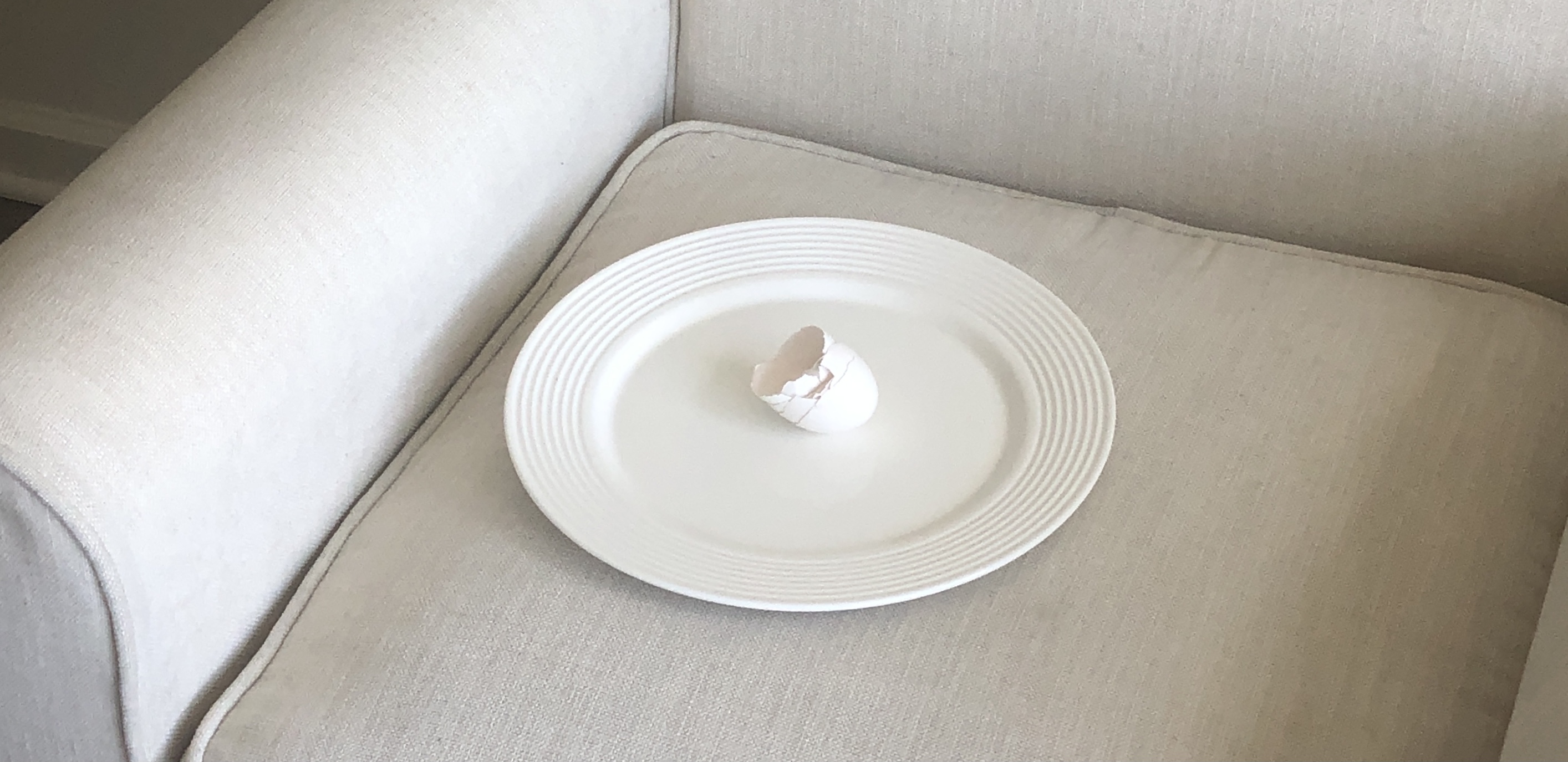Nirgendwohin, To nowhere, Bokyoung Han, 2023
![]()

Pain gets associated with where people live and so they need to travel, not to find happiness but to get away from the material objects that seem to have absorbed all their owners’ sadnesses.
David Shields “How literature saved my life”
고통 이후의 날들 고통은 수시로 사람들이 사는 장소와 연관되고, 그래서 그들은 여행의 필요성을 느끼는데, 그것은 행복을 찾기 위해서가 아니라 자신들의 슬픔을 몽땅 흡수한 것처럼 보이는 물건들로부터 달아나기 위해서다.
데이비드 실즈 ‘문학은 어떻게 내 삶을 구했는가’ 중
일부 발췌
고통 이후의 날들
Nirgendwohin, To nowhere 은 나 자신을 부정하는 날들과 많은 비방 속에서의 도피에 관한 이야기다. 단어 의미 자체로 ‘아무 데도’ 아닌, 아무도 나를 알지 못하고 나의 언어를 알아들을 수 없는 곳이자 자발적이며 동시에 강제적인 도피처에서 완벽
한 이방인으로서의 기록이다.
내가 살고 존재하는 나라에서는 나의 모든 행동들에 대한 명백한 근거가 필요하다.
작게는 내가 행하는 일에 관한 근거. 그리고 모든 관계에 관한 책임감. 나의 모든 행동에 대응하는 결과를 받아들임과 동시에 타당한 근거가 필요하다.
하지만 여행에서 나는 철저한 이방인이 되어, ‘의식주’ 세 가지에만 오롯이 집중하게 된다. 내가 계속해서 살아온 공간과 나라에는 생채기가 여기저기 나 있다. 나는 나의 삶의 모든 구석에 물러 터진 것들이 완벽하게 씻겨 사라지는 것을 기다리지 못한채 도망치게 됐다. 한번도 살아본 적 없는 곳에서 나는 그곳의 물건들을 수집하는 과정을 기록하고 어울리지 않는 사물들을 조합하고 응시했다.
그 시간만큼은 어쩌면 모든 것에 대한 책임, 비방 그리고 언젠가도 하지 못할 용서로부터 도피할 수 있는 유일한 돌파구라 믿었다.
어째서 내가 의심받고, 증거를 대야하고, 설명해야 하는가.
After attack
“Nirgendwohin” or “To nowhere” is a story about escaping from self-denial and criticism.
The word “nowhere” represents a place where nobody knows me or understands my language — yet it is a record of being a complete stranger in a voluntary but also coercive place of refuge.
It is a record of being a perfect stranger in a place where nobody else can comprehend me.
In the country where I live and exist, there is a need for clear justification for all my actions.
Starting from the smallest things, there is a need for rationale for my actions. I must take responsibility for all of my relationships. I need a valid justification that corresponds to the consequences of my actions.
However, during my journey, I become a complete stranger, focusing solely on three essential elements: “food, clothing and shelter.”
In the space and country where I have spent my entire life, there are scratches scattered everywhere. Without waiting for everything that had decayed and deteriorated in every corner of my life to be washed away, I ended up running away.
In a completely strange place that I have never experienced or lived in before, I documented the process of collecting objects and observed the combinations of mismatched objects.
For that time, I believed it was the only breakthrough where I could escape from responsibilities, criticism, and forgiveness that might never come.
Why should I be doubted, demanded to provide evidence, and forced to explain myself?
“Nirgendwohin” or “To nowhere” is a story about escaping from self-denial and criticism.
The word “nowhere” represents a place where nobody knows me or understands my language — yet it is a record of being a complete stranger in a voluntary but also coercive place of refuge.
It is a record of being a perfect stranger in a place where nobody else can comprehend me.
In the country where I live and exist, there is a need for clear justification for all my actions.
Starting from the smallest things, there is a need for rationale for my actions. I must take responsibility for all of my relationships. I need a valid justification that corresponds to the consequences of my actions.
However, during my journey, I become a complete stranger, focusing solely on three essential elements: “food, clothing and shelter.”
In the space and country where I have spent my entire life, there are scratches scattered everywhere. Without waiting for everything that had decayed and deteriorated in every corner of my life to be washed away, I ended up running away.
In a completely strange place that I have never experienced or lived in before, I documented the process of collecting objects and observed the combinations of mismatched objects.
For that time, I believed it was the only breakthrough where I could escape from responsibilities, criticism, and forgiveness that might never come.
Why should I be doubted, demanded to provide evidence, and forced to explain myself?

